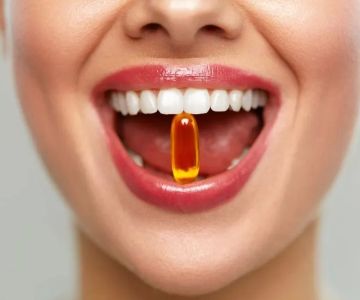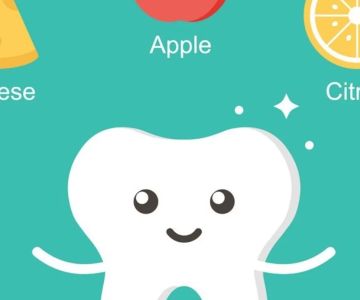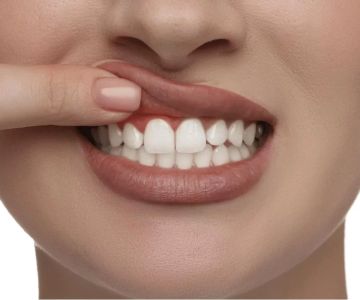Can Diet Soda Cause Oral Cancer? Unraveling the Myths and Facts
As a lover of refreshing beverages, I've often found myself reaching for a cold can of diet soda, especially when I'm craving something sweet without the calories. But recently, I started wondering: can this popular drink pose a risk to my health? Specifically, can diet soda cause oral cancer? After researching the topic thoroughly, I’ve gathered some surprising insights. Let’s dive into the potential risks, the role of artificial sweeteners, and the connection between diet soda and oral health.
The Rise of Diet Soda: A Popular Choice
Diet soda has been a staple in the beverage world for decades. The promise of a sweet, fizzy drink with no calories makes it an attractive option for those looking to cut back on sugar. From Coca-Cola Zero to Diet Pepsi, these sugar-free drinks are found in nearly every grocery store and restaurant. But as the popularity of diet soda increased, so did concerns about its potential health risks.
Understanding Artificial Sweeteners and Their Impact
The key ingredient in diet soda that differentiates it from regular soda is artificial sweeteners. These chemical compounds, such as aspartame, sucralose, and acesulfame potassium, are used to mimic the taste of sugar without the added calories. While the FDA has approved these sweeteners for consumption, they have sparked debate due to potential health concerns.
Is There a Link Between Diet Soda and Cancer?
One of the most alarming claims surrounding diet soda is its supposed link to cancer. Some studies have suggested that artificial sweeteners, particularly aspartame, may increase the risk of cancer. However, scientific research has not conclusively proven these claims. While some animal studies showed a potential increase in cancer rates, human studies have failed to establish a clear connection.
The International Agency for Research on Cancer (IARC), which is part of the World Health Organization, has stated that aspartame is not a carcinogen. The FDA and other health organizations have also reviewed extensive research on artificial sweeteners and found them to be safe for consumption in the amounts typically consumed by humans. Despite these reassurances, many people remain concerned about the long-term effects of consuming artificial sweeteners daily.
Diet Soda and Oral Health: A Closer Look
When it comes to oral health, diet soda’s impact is more evident. Even without sugar, diet soda is acidic, and frequent consumption can contribute to enamel erosion, leading to tooth sensitivity and cavities. The acid in diet soda can weaken the enamel on your teeth, which makes them more vulnerable to decay. Although diet soda doesn’t directly cause oral cancer, its impact on your oral health cannot be overlooked.
Additionally, artificial sweeteners have been linked to a reduction in saliva production, which is important for protecting your teeth. Less saliva means your mouth is less effective at neutralizing acids and washing away food particles. Over time, this can lead to dry mouth and increased plaque buildup, both of which can contribute to oral health issues like gum disease and cavities.
The Debate Continues: Should You Avoid Diet Soda?
The debate over diet soda’s safety continues to be a polarizing topic. While there is no definitive evidence to suggest that diet soda directly causes oral cancer, the potential long-term effects of artificial sweeteners and the impact on oral health are areas of concern. Moderation is key, as excessive consumption of diet soda can contribute to tooth decay, enamel erosion, and other oral health issues.
For those of us who can’t resist the allure of a fizzy, refreshing beverage, it’s important to be mindful of how much we consume. Incorporating good oral hygiene practices, such as brushing and flossing regularly, can help mitigate some of the potential risks associated with diet soda. Regular visits to the dentist are also essential for maintaining optimal oral health.
Alternative Options: What to Drink Instead?
If you're looking to reduce your diet soda intake but still want something refreshing, there are plenty of alternatives that are both healthy and satisfying. Herbal teas, sparkling water, and flavored water are excellent options that won’t damage your teeth or put your health at risk. Infusing water with fruits like lemon, lime, or cucumber can also provide a refreshing twist without the added sugar or chemicals found in diet soda.
Personally, I’ve found that switching to sparkling water with a splash of lemon has been a great alternative. It offers the fizzy sensation I crave without the harmful effects of artificial sweeteners. Plus, it’s a much healthier option for my teeth and overall well-being.
Conclusion: Moderation Is Key
In the end, while diet soda may not directly cause oral cancer, it does have potential drawbacks that can impact your oral health. The key to enjoying diet soda or any beverage with artificial sweeteners is moderation. It’s important to be aware of the risks, especially when it comes to tooth health, and take steps to protect your smile. By maintaining a balanced diet, practicing good oral hygiene, and staying hydrated with healthier alternatives, you can enjoy a drink every now and then without compromising your long-term health.







 Westgate Dental Arts
Westgate Dental Arts Coventry Family Dental
Coventry Family Dental Familia Dental
Familia Dental Dr. Daniel S. Fife, DDS
Dr. Daniel S. Fife, DDS Dentistry At Suburban Square: Michael I. Wollock, DMD
Dentistry At Suburban Square: Michael I. Wollock, DMD Comfort Care Dental
Comfort Care Dental The Importance of Oral Health Education During Pregnancy for a Healthy Pregnancy
The Importance of Oral Health Education During Pregnancy for a Healthy Pregnancy Why Skipping Dental Checkups Can Lead to Bigger Oral Health Problems
Why Skipping Dental Checkups Can Lead to Bigger Oral Health Problems Best Tips for Brushing Your Teeth Properly for Healthy Gums: Essential Techniques for Oral Health
Best Tips for Brushing Your Teeth Properly for Healthy Gums: Essential Techniques for Oral Health Advantages of Porcelain Dental Restorations
Advantages of Porcelain Dental Restorations How Can Diabetes Cause Tooth and Gum Problems? Preventing and Managing Oral Health Issues
How Can Diabetes Cause Tooth and Gum Problems? Preventing and Managing Oral Health Issues Healthy Habits for Promoting Good Oral Health and Hygiene: Tips for a Healthy Smile
Healthy Habits for Promoting Good Oral Health and Hygiene: Tips for a Healthy Smile